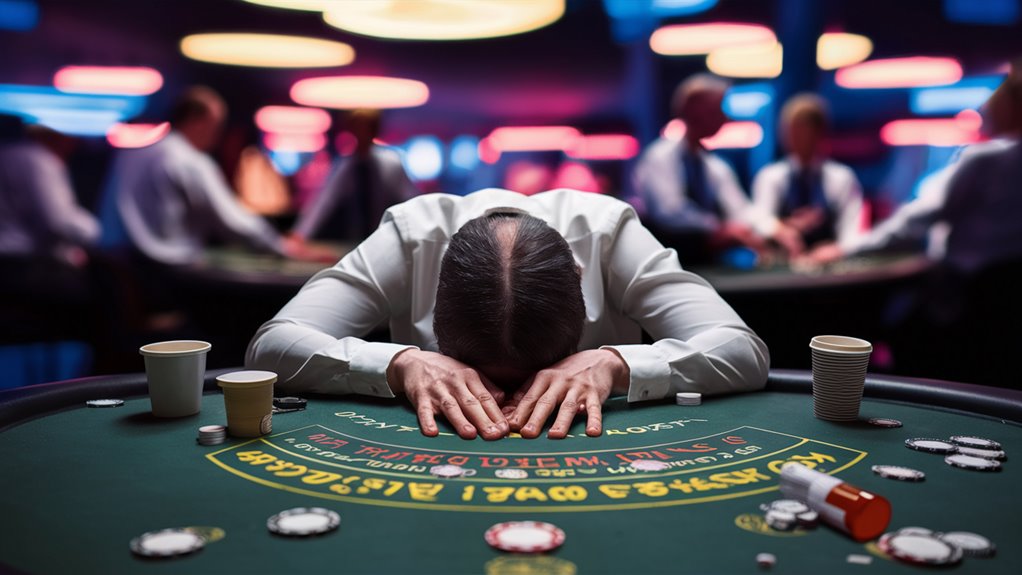
The Link Between Gambling and Brain Tiredness

Mental tiredness impacts bad gambling habits by affecting the brain’s decision-making areas. When the mind lacks energy, the front part of the brain shows reduced activity, weakening judgment and increasing risk-taking likelihood.
Effects on Making Choices
How digital wallets Research indicates tired individuals are 30% more likely to engage in risky bets. This risky behavior results from tiredness disrupting cognitive functions necessary for:
- Risk assessment
- Emotion regulation
- Outcome evaluation
- Impulse control
The Harmful Loop
A negative cycle emerges where stress from gambling depletes mental resources, concurrently:
- Weakening self-control
- Complicating rational decision-making
- Increasing risky betting
- Causing further mental fatigue
Getting Out of the Loop
Recognizing this tiredness-gambling link is crucial for intervention strategies. Understanding these brain functions helps individuals and healthcare providers create strategies to break this detrimental loop and foster healthier decision-making habits.
Why The Mind Gets Tired
Why The Mind Gets Tired
About Brain Drain
Mental tiredness arises when prolonged cognitive effort depletes energy reserves.
The frontal brain region, responsible for decision-making and 더 많은 정보 보기 self-control, requires ample glucose for optimal functioning.
Intense brain activity depletes glucose stores, impairing cognitive performance.
Body Changes with Mental Tiredness

Studies reveal that mental tiredness results in significant physiological changes.
Neurotransmitter imbalances, particularly in dopamine and norepinephrine, affect concentration and motivation.
Increased adenosine accumulation, a crucial neurotransmitter, induces fatigue and diminished alertness.
Brain Load and Its Effects
The concept of brain load illustrates that memory capacity is finite.
Exceeding these limits diminishes neural network efficiency, slowing and degrading processing accuracy.
The brain’s stress response triggers cortisol release, impairing cognitive functions.
- Difficulty concentrating
- Increased errors
- Strategy Games
- Impaired judgment
- Subpar decision-making skills
Brain Paths in Overload
When overwhelmed, neural pathways operate suboptimally and physiological processes decelerate.
Understanding these dynamics aids in designing effective strategies for managing mental fatigue and maintaining cognitive health.
How Tiredness Hits Choices
How Tiredness Hits Choices
How Tired Minds Make Bad Decisions
Brain fatigue significantly disrupts decision-making, as research reveals substantial declines in judgment and risk assessment.
Influence Betting Behavior brain’s prefrontal cortex, governing crucial functions, demonstrates reduced activity when fatigued, resulting in impaired thought processes and emotional regulation.
Main Changes in Choice-Making When Tired
Mental fatigue induces three primary alterations in decision-making:
- Increased reliance on heuristics, decreased analytical thinking
- Diminished risk perception, leading to impulsive choices
- Heightened focus on immediate rewards, overlooking long-term consequences


